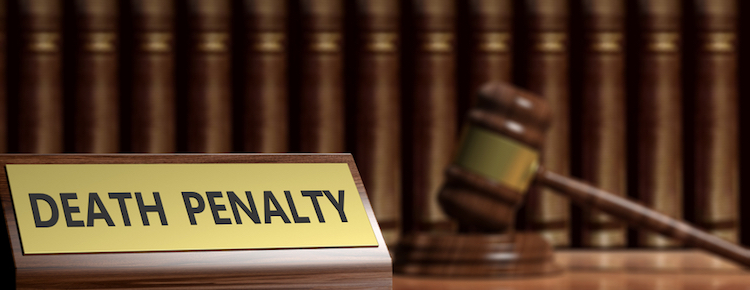Death Penalty
Florida cases seeking death penalty for child sex abuse could test precedent in Supreme Court

Two Florida prosecutions could test the U.S. Supreme Court’s 5-4 ruling in 2008 that held that the death penalty for child rape is unconstitutional. (Image from Shutterstock)
Two Florida prosecutions could test the U.S. Supreme Court’s 5-4 ruling in 2008 that held that the death penalty for child rape is unconstitutional.
Prosecutors in Palm Beach County, Florida, filed notice earlier this month that they intend to seek the death penalty for Josue Mendez-Sales, and his roommate, Pablo Cobon-Mendez, who are accused of repeatedly sexually abusing a 6-year-old girl, the South Florida Sun Sentinel reports in a story published by the Tampa Bay Times.
And in Putnam County, Florida, prosecutors indicated in June that they will seek the death penalty against Dimeco Henderson, who is accused of sexually abusing two children over a three-year period.
Florida adopted the death penalty for child rape in 2023, the first to do so following the 2008 Supreme Court decision. Tennessee followed in 2024, and in 2025, Idaho, Oklahoma and Arkansas passed similar laws, the South Florida Sun Sentinel article reports. But Florida appears to be the only state that is seeking the death penalty in trials for child sex-abuse cases, according to Robin Maher, the executive director for the Death Penalty Information Center, a nonprofit organization based in Washington, D.C.
The Supreme Court ruled 5-4 in June 2008 that the death penalty for child rape is unconstitutional under the Eighth Amendment and the 14th Amendment. Now-retired Justice Anthony Kennedy wrote the majority opinion in the case, Kennedy v. Louisiana.
The four justices who joined Kennedy’s opinion are retired or no longer alive. Three of the four dissenters are still on the high court: Chief Justice John Roberts, Justice Samuel Alito and Justice Clarence Thomas.
Florida State Sen. Jonathan Martin, a Republican in Fort Myers, Florida, sponsored the Florida bill authorizing the death penalty for child rape. He told the South Florida Sun Sentinel that the law is designed to challenge Supreme Court precedent because it is different than the one at issue in Kennedy v. Louisiana. The Florida law includes a penalty phase to consider aggravating and mitigating factors, unlike the Louisiana law.
Opponents of the new laws see a slippery slope. One critic is Michelle Suskauer, a West Palm Beach, Florida, defense attorney and a former president of the Florida Bar.
“Where will the line be drawn and what other charges will be included?” Suskauer asked in an interview with the South Florida Sun Sentinel.
She wondered whether lawmakers will follow with the death penalty for child pornography, for rape or for kidnapping.
“So where does the line get drawn? You keep moving the line, that’s a scary situation,” she said.
Write a letter to the editor, share a story tip or update, or report an error.

